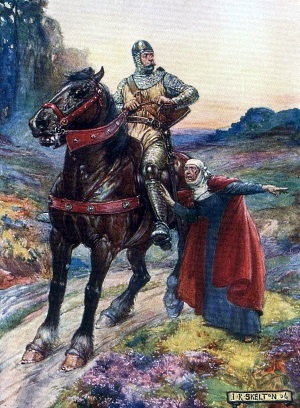Scottish National Hero William Wallace Brutally Killed On This Day In 1305
It was on this day on 23 August 1305 that Scottish national hero William Wallace was brutally killed by his English captors. William Wallace (Scottish Gaelic: Uilleam Uallas; c.1270 - died 23 August 1305) was a Scottish knight, patriot and national hero. He was one of the main leaders during the Wars of Scottish Independence. Leading the Scottish rebellion against Edward I and along with Andrew Murray inflicted a famous defeat on the English army at Stirling Bridge.
This Scottish victory over the English and subsequent military successes severely weakened the English grip on Scotland. William Wallace then launched raids into England but was beaten back. In 1298 he was knighted and appointed the Guardian of the Kingdom of Scotland in the name of John Balliol, the deposed king of Scotland. Edward then marched north with a powerful army marching deeper into Scotland. In July 1298, the Scottish and English armies met near Falkirk, and the Scots were defeated. Wallace escaped and went abroad in 1299, notably to France, to try and seek support for the Scottish cause.
He returned to Scotland in 1303 and sort to rally the fight back against the English. William Wallace was betrayed and seized at Robroyston near Glasgow on 3rd August 1305. He was transported to London where he was charged and tried with treason. During the sham trial at which he was denied the right to speak, he shouted his denial of the charge stating that he was: "A Scot, born in Scotland, and did not recognise England as his sovereign nation".
His murder took place on 23 August, 1305 when he was stripped naked and dragged through the city. He was hung, drawn and quartered. First strangled by hanging, taken down while alive, emasculated, eviscerated and his bowels burned in front of him. He was beheaded then cut into four parts. His head was placed on London Bridge, and his limbs displayed in Newcastle, Berwick, Stirling and Perth. The hope of the English King was to disrespect and cower the Scottish. However, at the end of the Wars of Scottish Independence between the Kingdom of Scotland and the Kingdom of England, Scotland retained its status as an independent nation.
The memory of William Wallace lives on in the heart and souls of Scots men and women and will do until the end of time.

- Douglas MacQueen's blog
- Log in to post comments





